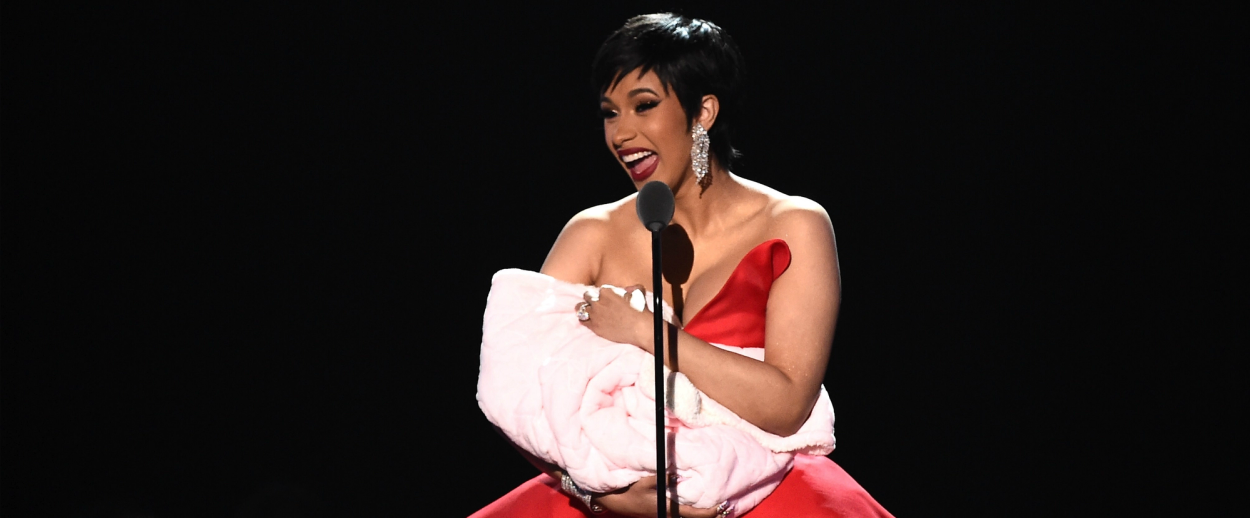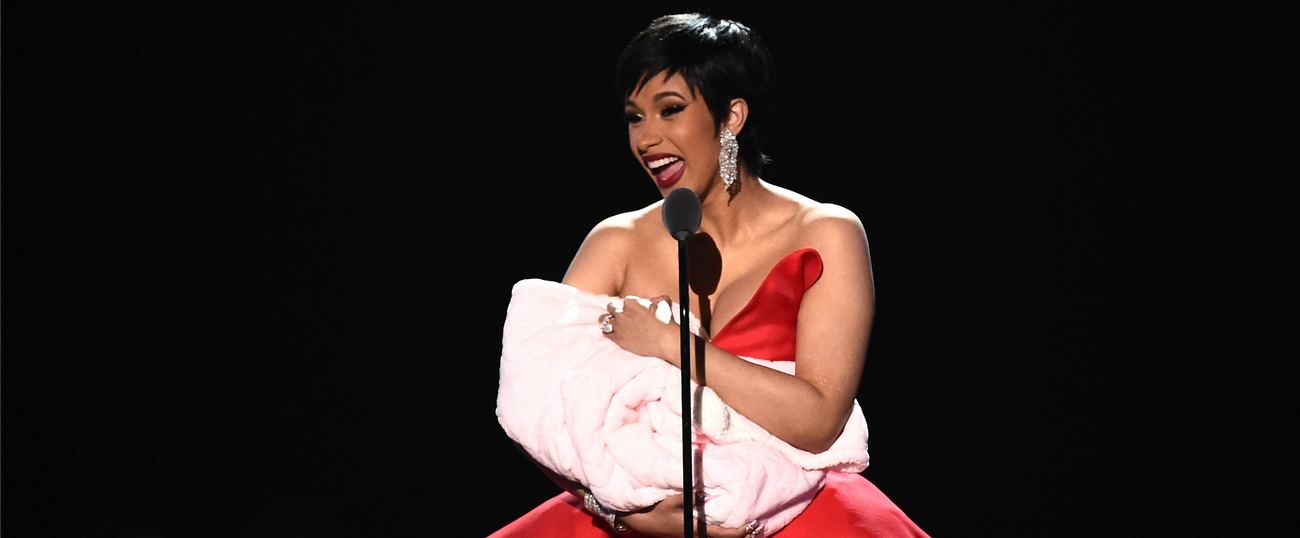Cardi B Got Me Through My Son’s Circumcision
Keeping a ‘Cardi B attitude’ gives a new father strength during his son’s birth and bris




On July 10th, Cardi B had two songs in the top five of the Billboard Hot 100: “I Like It” with Bad Bunny and J Balvin and “Girls Like You” alongside Maroon 5. In the months leading to my wife Annie’s July 22nd due date, I had both on repeat. They reminded me of her—powerful, outspoken, the daughter of immigrants. Like many Americans, I connected to Cardi B’s success because it represented my family’s—she was resourceful like my grandfather who went from peddling to creating the family decorating business. I admired the way the outspoken Bronx-born rapper pushed back against a society that urged my grandfather to assimilate, change his name, trim his beard, and stop keeping Shabbat to achieve his success.
When Cardi B announced her daughter’s July 10th birth via Instagram, I was kvelling. The same day, my wife and I welcomed our son on our Albany, New York, apartment floor. The “Bodak Yellow” hit-maker and her husband, Offset, named their daughter Kulture, while Annie and I waited eight days to announce our son’s name at his bris, which my wife, a black Jew-by-choice, was nervous about.
Like many traditionally paranoid Jews, we didn’t want to tempt the “evil eye” with pre-birth purchases, so Annie and I didn’t find out the sex to sway impatient relatives from purchasing irresistible blue onesies or floral dresses. (My mother-in-law just bought both.) Meanwhile, Annie and I contacted mohels to have on deck. To us the decision was a dedication of love for our son and our tribe. We understood critics of the ritual who believed that a baby had agency over their body, but parents make many difficult decisions and we felt that since a baby cannot make informed choices on faith, morals, and identity, it was our responsibility. The same way a child didn’t decide whether they were born black, they didn’t decide whether they were born Jewish and they should learn to respect their heritage. Still, my wife found herself hoping the baby was a girl.
Annie reached out for support. A friend joked that at her son’s bris she decorated her dining table with bananas and plastic knives while another admitted she nearly passed out. After telling our non-Jewish midwife numerous times of our decision to have the ceremony, the moment Annie mentioned anxiety the midwife presented pamphlets advocating against the procedure, not understanding that Annie was searching for empathy, not alternatives.
That July night, at 2 a.m., my wife woke me asking if I thought her water broke. Six hours later, she delivered our son, sunny side up with a tongue- and lip-tie. He couldn’t latch. The entire next week my wife pumped while I finger fed the baby through a tube. Annie said, “I don’t have energy to stress the circumcision”—she was just grateful for our baby boy. Family came to support us, and we turned down a meal train: Annie only wanted her mom’s Jamaican cooking. As the eighth day neared we realized how blessed we were. Even with the breastfeeding difficulties, our son was healthy and animated. Like me, he kvetched with his hands. With the help of her Nigerian family we came up with a name: Avishai (Hebrew) Olamilekan (Yoruba) meaning he’s a gift from God who increased our prosperity. We celebrated with jollof rice, pounded yam, and efo that Annie’s sister flew in.
Other than Annie’s family, there were only three non-Jewish buddies in attendance at the bris. At first I was offended. Anti-circumcision advocacy was powerful: The rate of the procedure was dropping in America. Well-meaning opponents didn’t understand the ritual was inseparable from Judaism. Many viewed public circumcisions as foreign and weird. Then I realized the custom was our tribe’s covenant of weirdness, us stating we didn’t care how others saw us. I had a Cardi B attitude: pride for my Kulture.
At the ceremony, I glanced to make sure Annie was OK and gave her a thumbs-up to assure her that Avishai was well after his flash of pain. Annie later told me that she had found herself crying, initially worried he would hurt, but quickly she became overwhelmed with the feeling our son was a part of a spirituality larger than us. She envisioned his bar mitzvah, foresaw him being called to the Torah and killing his portion. Avishai Olamilekan linked his past—from Nigeria, Jamaica, and Mount Sinai—to the future, and we liked it like that.
Jay Deitcher is a writer and clinical social worker from Albany, New York.